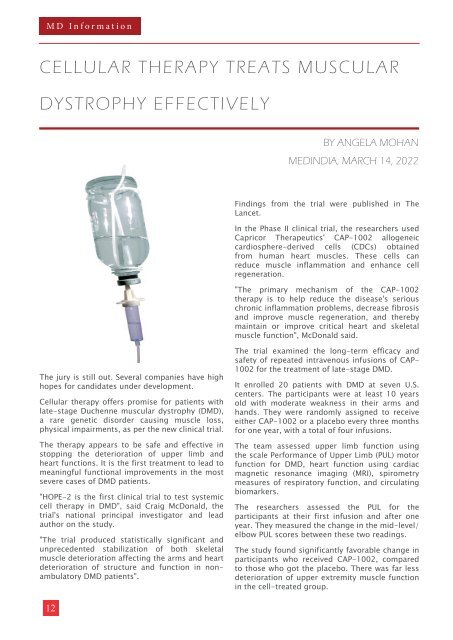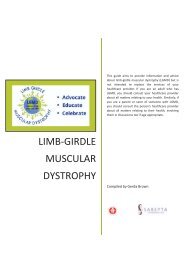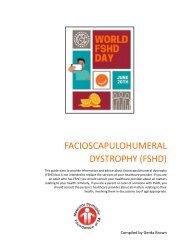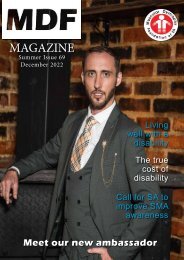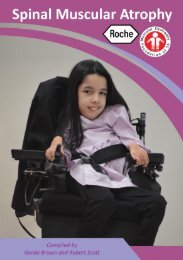Create successful ePaper yourself
Turn your PDF publications into a flip-book with our unique Google optimized e-Paper software.
MD Information<br />
CELLULAR THERAPY TREATS MUSCULAR<br />
DYSTROPHY EFFECTIVELY<br />
BY ANGELA MOHAN<br />
MEDINDIA, MARCH 14, <strong>2022</strong><br />
Findings from the trial were published in The<br />
Lancet.<br />
In the Phase II clinical trial, the researchers used<br />
Capricor Therapeutics' CAP-1002 allogeneic<br />
cardiosphere-derived cells (CDCs) obtained<br />
from human heart muscles. These cells can<br />
reduce muscle inflammation and enhance cell<br />
regeneration.<br />
"The primary mechanism of the CAP-1002<br />
therapy is to help reduce the disease's serious<br />
chronic inflammation problems, decrease fibrosis<br />
and improve muscle regeneration, and thereby<br />
maintain or improve critical heart and skeletal<br />
muscle function", McDonald said.<br />
The jury is still out. Several companies have high<br />
hopes for candidates under development.<br />
Cellular therapy offers promise for patients with<br />
late-stage Duchenne muscular dystrophy (DMD),<br />
a rare genetic disorder causing muscle loss,<br />
physical impairments, as per the new clinical trial.<br />
The therapy appears to be safe and effective in<br />
stopping the deterioration of upper limb and<br />
heart functions. It is the first treatment to lead to<br />
meaningful functional improvements in the most<br />
severe cases of DMD patients.<br />
"HOPE-2 is the first clinical trial to test systemic<br />
cell therapy in DMD", said Craig McDonald, the<br />
trial's national principal investigator and lead<br />
author on the study.<br />
"The trial produced statistically significant and<br />
unprecedented stabilization of both skeletal<br />
muscle deterioration affecting the arms and heart<br />
deterioration of structure and function in nonambulatory<br />
DMD patients".<br />
The trial examined the long-term efficacy and<br />
safety of repeated intravenous infusions of CAP-<br />
1002 for the treatment of late-stage DMD.<br />
It enrolled 20 patients with DMD at seven U.S.<br />
centers. The participants were at least 10 years<br />
old with moderate weakness in their arms and<br />
hands. They were randomly assigned to receive<br />
either CAP-1002 or a placebo every three months<br />
for one year, with a total of four infusions.<br />
The team assessed upper limb function using<br />
the scale Performance of Upper Limb (PUL) motor<br />
function for DMD, heart function using cardiac<br />
magnetic resonance imaging (MRI), spirometry<br />
measures of respiratory function, and circulating<br />
biomarkers.<br />
The researchers assessed the PUL for the<br />
participants at their first infusion and after one<br />
year. They measured the change in the mid-level/<br />
elbow PUL scores between these two readings.<br />
The study found significantly favorable change in<br />
participants who received CAP-1002, compared<br />
to those who got the placebo. There was far less<br />
deterioration of upper extremity muscle function<br />
in the cell-treated group.<br />
12


